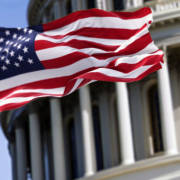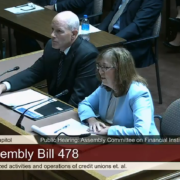By John Cronin
Legislative and Congressional redistricting is one of the most significant things the state Legislature undertakes every ten years in order adjust each Assembly, Senate, and Congressional district after the census. The Legislature is responsible for redrawing lines, subject to the Governor’s veto. This saga has been playing out for several months now in all three branches of government.
Over the summer, before census data was even available to draw new district boundaries, right- and left-leaning interest groups were filing lawsuits attempting to steer inevitable litigation to either the State Supreme Court or federal court. This was done because everyone knew the GOP-controlled state Legislature and Democratic Gov. Tony Evers would never agree on a redistricting plan. Both the Wisconsin Supreme Court (SCOWIS) and the 7th Circuit Court of Appeals accepted separate cases on the matter earlier in the fall.
What many predicted would inevitably be a perfunctory legislative process did indeed take place in October and November. Republican leaders in the Assembly and Senate introduced new maps in late October. Those maps were approved in each house on party-line votes in mid-November. True to his word, Gov. Evers vetoed those maps a week later.
Upon the Governor’s veto, the redistricting process ended up in its expected destination — the courts. This will be litigated over the next month in the Wisconsin Supreme Court; the federal panel paused their action, stating they were going to observe SCOWIS’s action before deciding whether to act.
The most recent development in the case at the state level took place on November 30, when SCOWIS stated they would make the “minimum changes necessary” to the current legislative and congressional maps when it determines new boundaries. This was viewed as a big win for Republicans, who already hold significant majorities in both chambers of the State House.
Oral arguments are expected in January before the Wisconsin Supreme Court. A decision on district boundaries must be made in advance of April 15, the first day candidates may circulate nomination papers for the November 2022 general election.



 By Rose Oswald Poels
By Rose Oswald Poels




